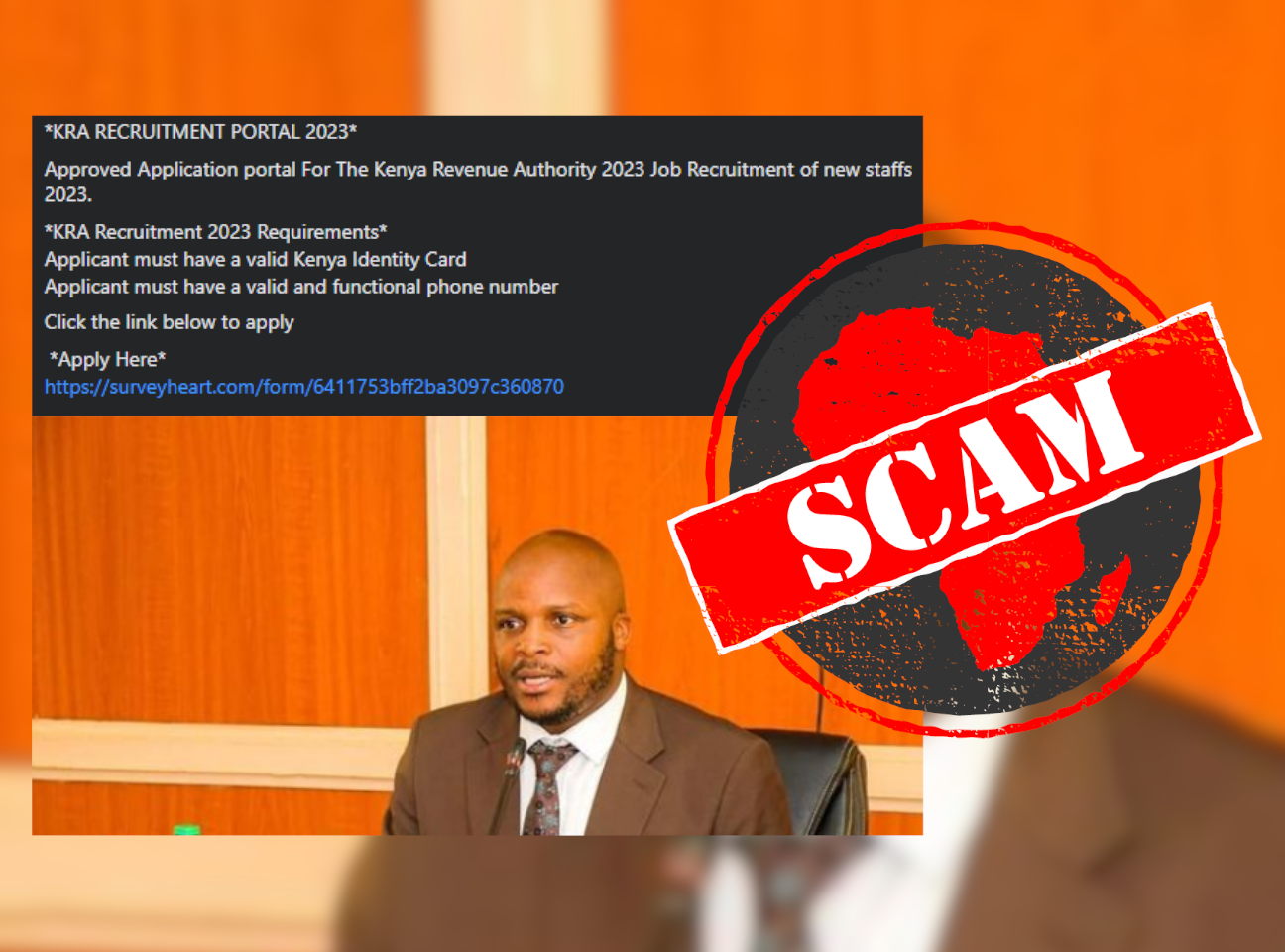IN SHORT: The Kenya Revenue Authority is advising the public to visit its official website and social media platforms for vacancies. And if a fee is required during the application process, know that it’s a scam.
An advert posted on Facebook in Kenya claims the Kenya Revenue Authority (KRA), the country’s tax authority, is hiring.
The post’s headline reads: “KRA RECRUITMENT PORTAL 2023.” It gives a link that it claims is the approved recruitment portal for the authority.
The ad says applicants must have a valid Kenyan identity card, a working cell phone number and directs them to use the link to apply.
But is the link legit and is KRA hiring? We checked.

Signs of scam
Africa Check attempted to open the link to the website – surveyheart.com – but both Chrome and Firefox browsers immediately warned that it was deceptive.
We took the risk – not recommended – and scoured the site to explore how the application process works. It asked us for our personal details like name, cell phone number, email address and ID number.
The website then asked us to deposit KSh350 as “registration fee” and warned that the application would only be approved on receiving payment.
Asking for a fee is a clear sign that the website is being run by scammers as it's extremely unlikely that the government would ask for money from applicants.
The website also doesn’t say which positions are being advertised or give a deadline for applications. This is uncharacteristic of a professional advert.
‘We do not charge for job applications’ says KRA
We checked the career section of KRA’s official website and found no job ads.
In a post on the tax authority’s verified Facebook page, it says it only posts job openings on its official website and does not charge for applications.
The advert is a scam.
To help protect yourself against online fraudsters, read our guide to Facebook scams and how to spot them.
Republish our content for free
For publishers: what to do if your post is rated false
A fact-checker has rated your Facebook or Instagram post as “false”, “altered”, “partly false” or “missing context”. This could have serious consequences. What do you do?
Click on our guide for the steps you should follow.
Publishers guideAfrica Check teams up with Facebook
Africa Check is a partner in Meta's third-party fact-checking programme to help stop the spread of false information on social media.
The content we rate as “false” will be downgraded on Facebook and Instagram. This means fewer people will see it.
You can also help identify false information on Facebook. This guide explains how.


Add new comment